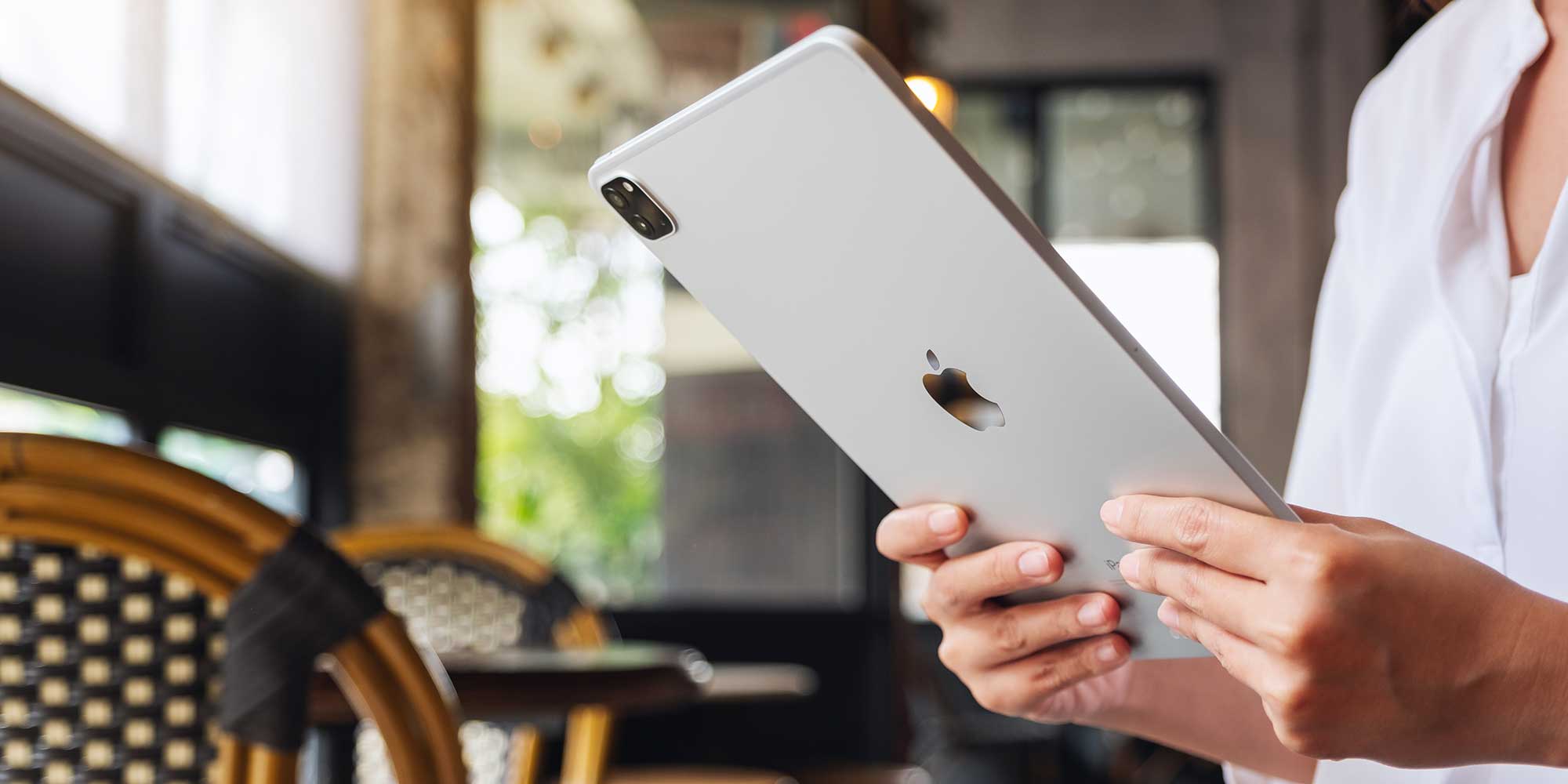Should you switch to a tablet instead of getting a new laptop?

If your old laptop needs replacing, the obvious next step is to buy a newer version. But that's not your only option - you could consider switching to a tablet.
In recent years, tablets have grown from simple media players into powerful devices for those who want to surf, shop, and socialise online. With laptop-grade processors, stunning screens and clever accessories, models like Apple's iPad Pro and Samsung's Galaxy Tab S11 Ultra are making a serious claim for the space on your desk.
But can a tablet truly replace the computer you rely on every day? We’ll help you decide, breaking down what a tablet can (and can’t) do, based on our rigorous lab tests. We'll recommend the top models for your specific needs, and some useful accessories, too.
We've tested the latest models to help you choose the best tablet for your needs and budget.
What a tablet does better than a laptop

Let’s start with the clear advantages. For the things most of us do every day, a tablet doesn’t just compete with a laptop — it often provides a better experience.
Better screen
Whether you’re watching a film, editing photos or just browsing the web, you'll get a superior viewing experience on a tablet.
Our lab tests reveal that tablet screens are, on average, over 45% brighter than laptop screens, making them much easier to see in sunny rooms. They are also significantly sharper with a much higher pixel density, which means text and images look crisp and clear. Colours are richer and more accurate, too.
Better battery
If you hate being tethered to a charger, you'll also find that a tablet offers better battery life for daily use. In our web browsing battery tests, tablets lasted an average of 3 hours and 14 minutes longer than laptops. The story was similar when streaming videos, where tablets outlasted laptops by an average of 1 hour and 49 minutes.
For a typical day of work or leisure, that’s a huge real-world advantage.
More portable
Beyond our lab data, tablets have a core advantage in their design, offering unmatched portability and versatility. They are thinner, lighter, and far easier to use in more situations — whether you’re on the sofa, in bed or on a plane.
The intuitive touch and stylus experience is also something a traditional laptop can’t replicate, making tablets ideal for creative work, taking handwritten notes, or simply navigating with a tap of your finger.
Where a traditional laptop or PC still wins

Before you trade in your laptop, it’s crucial to understand the areas where a traditional computer still holds a significant lead.
PC performance
Despite marketing claims, our performance tests show that laptops deliver significantly more raw processing power. On average, they are 37% faster in single-core performance (for simple tasks) and a massive 66% faster in multi-core performance (for complex jobs).
For demanding applications like video editing, working with complex spreadsheets or running specialised software, a laptop's superior power is essential.
Software
Desktop operating systems like Windows and macOS traditionally held a software advantage, offering flexible multitasking with resizable, overlapping windows. However, this has changed significantly with iPadOS 26, which introduces a more Mac-like windowing system that allows for freeform window management.
While this makes tablets more capable than ever, they can still be limiting for those who depend on specific or proprietary desktop software for their work or hobbies.
Convenience
Finally, you can't overlook a laptop's built-in convenience, particularly when it comes to weight. While a tablet on its own is incredibly light, that changes once you add the accessories needed for work.
For example, the latest 13-inch iPad Pro (M4) combined with its Magic Keyboard weighs a total of around 1.24kg. The latest 13-inch MacBook Air (M4) weighs... exactly the same.
At that point, the portability advantage disappears, and you're left with a laptop's more comfortable integrated keyboard, trackpad, and wider selection of ports, without needing to carry a bag of adaptors.
- Thinking a laptop is right for you? See our expert pick of the best laptop deals to find out which models and deals we recommend.
- Which? members: you have exclusive access to our round-up of the best laptops and all of our independent laptop reviews
"Are you a tablet person?": Which user are you?

So, should you make the switch? It all depends on what you do day-to-day.
- The Everyday User (web, email, streaming, social media): For this user, a tablet is an excellent fit. The superior screen and significantly longer battery life make it an ideal, and often more enjoyable, choice for these exact tasks. The processing power difference is irrelevant in this context.
- The Student (note-taking, essays, research): A tablet is a strong contender. The ability to combine a stylus for handwritten notes with a keyboard for writing essays is a powerful combination for campus life. The excellent battery life is also a huge plus for long days of lectures. The only caveat is to first verify that any required specialised software is available as a tablet app.
- The Mobile Professional (Eemails, documents, spreadsheets): This is a viable option, but know the trade-offs. A tablet is a fantastic secondary device for travel, but if your job involves data-heavy spreadsheets or performance-intensive software, our tests show a laptop is still the safer primary choice.
Definitely want a tablet? Don't pay over the odds - see our expert pick of the best tablet deals.
The top tablets we recommend
Which? members can view our expert recommendaitons for each of these types of users. This is an exclusive benefit for members.
Not yet a Which? member? It's easy - you can join Which? today to unlock our expert Best Buy picks and see our full reviews.
The essential accessories for a laptop-like experience
If you decide to go with a tablet, a couple of accessories are non-negotiable for turning it into a true productivity device.
- Keyboard Cases: This is the most important accessory. A good case with an integrated keyboard and trackpad, like Apple’s Magic Keyboard, transforms a tablet from a media device into a work machine.
- The Stylus: A stylus is for more than just drawing. It’s a brilliant tool for taking notes in meetings, signing documents, and for more precise navigation than you can manage with a fingertip.
- Hubs and Dongles: Be prepared to invest in a USB-C hub to regain the connectivity you’re used to. This will give you back the ports you need for external drives, monitors, and other accessories.




